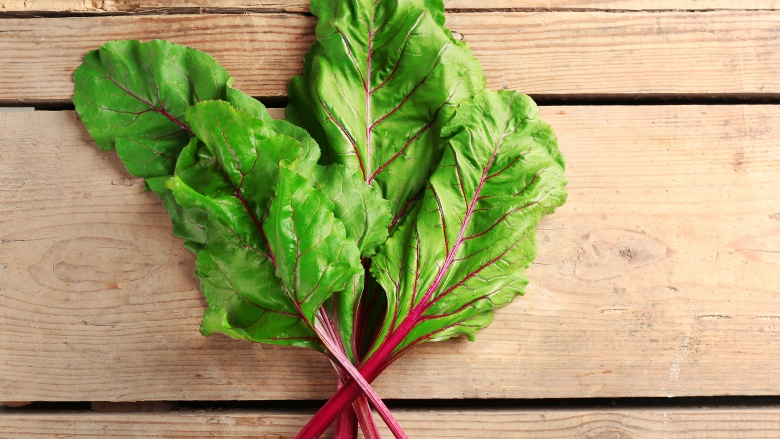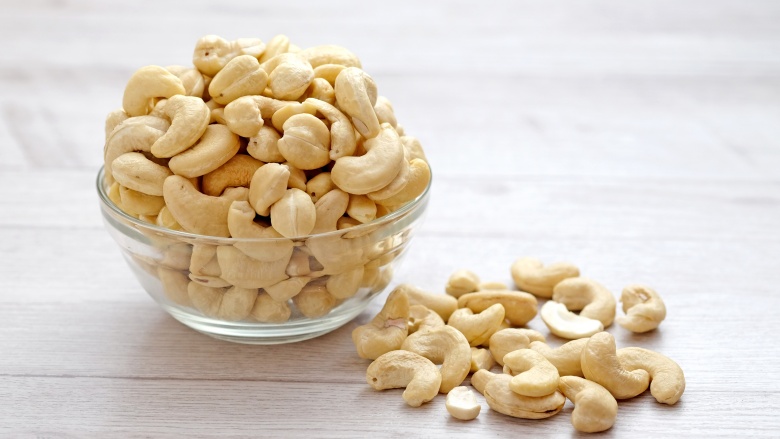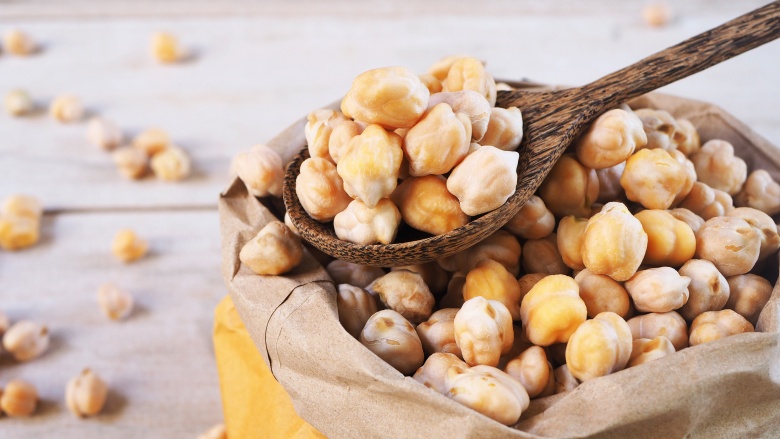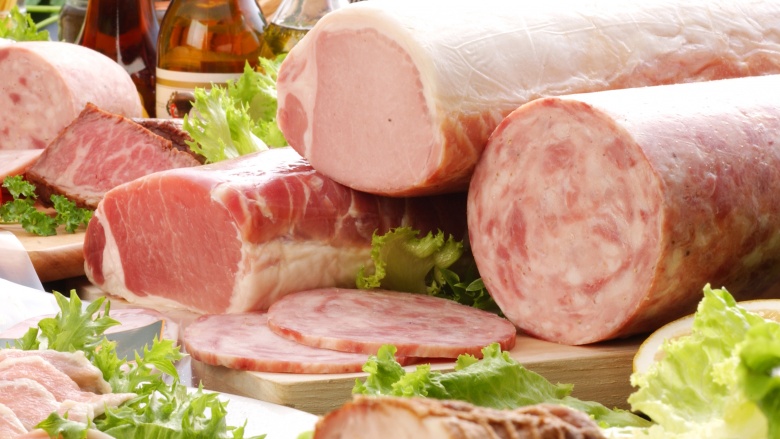Foods That Fight PMS
In the few days before they get their periods, many women can experience some aches and discomfort, such as headaches, sore muscles, sensitive breasts, and puffiness. However, when these symptoms are powerful enough to throw your daily life into disarray, this condition is known as premenstrual syndrome. It's been estimated that over 85% of premenopausal women experience at least one of the symptoms associated with this syndrome, which is more commonly referred to as PMS, and these symptoms aren't only physical, but emotional as well. To that end, women with PMS may also find themselves feeling depressed, angry, stressed, and less mentally alert. It's interesting to note that the exact cause of PMS isn't entirely clear, but one possible explanation is that it's simply a result of the natural hormonal fluctuations that can take place in a woman's body. Another probable explanation is that it has to do with the changing levels of serotonin in a woman's brain which can affect her mood and well-being. While there are various prescriptions and medications available for those looking to fight off their PMS blues, there are also foods that can help you maintain your power over PMS and regain control over your life.
Yogurt
Aside from being an easy and portable snack, eating yogurt has a wide array of health advantages, particularly for women. Yogurt has been linked to lowering your risk of osteoporosis, helps to fight off vaginal yeast infections, can reduce the likelihood of having high blood pressure, and can even aid in weight loss. When looking more closely at its connection to combating PMS, it's actually the calcium content in yogurt that helps to fight against this condition. In fact, a study from the University of Massachusetts in Amherst revealed that women who added more calcium into their diets were able to lower their risk of PMS. Specifically, by eating four low-fat servings of dairy each day, these women were able to reduce their probability of suffering from PMS by nearly 50%. As for why calcium is so important in combating PMS, it's believed that women who suffer from PMS tend to have a calcium imbalance and even have a higher chance of developing osteoporosis, which is why upping your calcium intake is vital on many different levels. If yogurt isn't your preferred go-to dairy delight, note that studies have also demonstrated similar results from the calcium found in milk. To that end, a study in the European Journal of Obstetrics, Gynecology, and Reproductive Biology found that women who increased their intake of milk helped to relieve symptoms of PMS, such as painful cramping and a bloated belly. But if you're anti-dairy altogether, a study in the American Journal of Obstetrics and Gynecology demonstrated that calcium supplements can also be extremely effective in combating puffiness, achiness, and other symptoms of PMS.
Tuna
While tuna contains many different health benefits, as it's been proven to help reduce your risk of developing heart disease, it's also an important food in combating PMS. Specifically, it's tuna's vitamin D content that works as a powerful tool in fighting off powerful PMS symptoms. It's interesting to note that vitamin D is crucial for maintaining bone health and helping to absorb calcium, and not having enough vitamin D has been linked to many different health problems, including various kinds of cancers. While increasing your vitamin D intake can help to ward off a wide range of conditions, from depression to high blood pressure, it also can help to fight against PMS. As noted in Archives of Internal Medicine, research has indicated that an increased intake of vitamin D can help to reduce the risk of PMS, as women who suffer from PMS tend to have lower levels of vitamin D. However, if you're just not a fan of fish, you can also increase your intake of vitamin D by soaking up some sunlight as well as eating mushrooms, egg yolks, and cereals and milks fortified with vitamin D.
Swiss chard
If you're looking to add more green vegetables into your daily routine, Swiss chard is a perfect solution, particularly when you're battling PMS symptoms. Swiss chard has numerous health benefits for women, as it's been shown to help lower your blood pressure, ward off osteoporosis, and can reduce your likelihood of becoming obese. Further, Swiss chard is also high in magnesium, and when you're hoping to fight off the aches, pains, and bloating associated with PMS, magnesium can play a vital role. As noted in the Journal of Women's Health, an increase in your daily magnesium intake can help to reduce liquid retention and puffiness. A study in Obstetrics and Gynecology also revealed that an increase in magnesium helped women to combat their mood swings. In a word, Swiss chard not only helps ward off the physical symptoms of PMS, but the mental and emotional symptoms as well. If you're not familiar with cooking Swiss chard and don't know where to begin, there are many different dishes for you to try that can make this healthy and PMS-fighting vegetable a new staple in your kitchen.
Chicken
When you're trying to fight PMS, including chicken in your diet is a step in the right direction. As noted by the American Heart Association, eating skinless chicken is a healthier choice than consuming red meat, as it contains less saturated fat and less cholesterol while still providing your body with much-needed protein. Chicken is also an excellent source of B vitamins which have been found to be essential for proper brain function and overall brain health. But the benefits of B vitamins don't stop there, as they also play an important role when it comes to preventing symptoms of PMS, as noted in The American Journal of Clinical Nutrition. Further, as noted in BMJ, formerly known as the British Medical Journal, increasing one's intake of vitamin B6 can help to reduce both the physical and mental symptoms associated with PMS, such as water retention, cramping, and breast pain, as well as depression, lethargy, and moodiness. The additional benefit of making chicken a top food choice is that it's extremely versatile, and no matter what your culinary skill level is, you can find countless recipes that can satisfy any palate while simultaneously helping to fight your PMS symptoms.
Cashews
When your goal is to fight off your PMS blues, eating cashews can play an important part. On the one hand, nuts have numerous health advantages, as research has found that consuming cashews can help to stabilize blood sugar, as noted in the journal PLOS One. In fact, tree nuts such as cashews have also been linked to better cardiovascular health and improved metabolic functioning. Nuts have long been regarded as an excellent source of protein and unsaturated fat, and they can even help with weight management.
The power of cashews extends to combating symptoms of PMS due to their high zinc content. Zinc is a mineral that's vital to proper cell development as well as helping your immune system to stay strong. But zinc's benefits don't stop there. Research in the American Journal of Epidemiology has found that increasing your zinc intake is associated with reducing the painful and uncomfortable symptoms of PMS. If you're looking for a handy and healthy snack in the battle against your PMS symptoms, a few handfuls of cashews can go a long way.
Oats
Oats have long been touted as a food with healing powers, primarily because eating oats can help improve your health in many different ways. For example, as noted in The American Journal of Clinical Nutrition, adding oats to your diet can significantly lower your cholesterol levels and help to fight hypertension. In addition, as discussed in Plant Foods for Human Nutrition, increasing your intake of oats can aid in warding off obesity, reducing belly fat, and helping your liver.
But oats also have the power to help you fight off your worst PMS symptoms due to their manganese content. Manganese is a mineral that plays a role in many different bodily processes, from metabolic functions to the stabilization of blood sugar, and it's also essential for bone and tissue health. When it comes to fighting PMS, a study in the American Journal of Obstetrics and Gynecology demonstrated that lower levels of manganese in a woman's body have been linked to increased pain and cramping as well as poorer moods. So if you're looking to alleviate your discomfort and find much-needed relief from your moodiness and testiness, adding oats to your daily routine is an easy step. There are countless ways to enjoy oats, such as a bowl of oatmeal in the morning, a sandwich on oat bread for lunch, an oat bar for a snack, or oat-crusted chicken for dinner. And who could ever turn down oatmeal raisin cookies for dessert?
Tea
When you're seeking relief from PMS pain and discomfort, a cup of tea can work wonders for your entire body. Teas have long been praised for their healing powers, especially in terms of their ability to help ward off certain cancers, prevent obesity, reduce the risk of cardiovascular disease, and help to regulate blood sugar levels. But it's tea's effect on a person's mood and alertness levels that can be particularly appealing for women suffering from irritability, lack of energy, memory impairment, and other mental PMS symptoms. A study in The American Journal of Clinical Nutrition concluded that drinking tea can help a person feel calm and soothed while simultaneously helping to improve his or her focus and mental sharpness. In other words, consuming tea can help you fight off mood swings and keep your brain functioning at peak levels.
If you choose tea to aid in your fight against PMS, the tea you drink can be either caffeinated or decaffeinated. Research from the University of Massachusetts in Amherst has found that lowering your intake of caffeine isn't critical in combating symptoms of PMS. Whatever type of tea you prefer, such as green tea, black tea, or oolong tea, battling your painful PMS symptoms is only a sip away.
Chickpeas
Another powerful food in combating PMS is the chickpea. Also known as garbanzo beans, chickpeas can be advantageous to your health in numerous ways. Research has found that increasing your intake of chickpeas has been linked to improved blood sugar control as well as improved cholesterol levels. Secondly, upping the amount of beans that you have in your diet can aid in your ability to lose weight, plus they're packed with protein, fiber, antioxidants, as well as iron. And speaking of iron, research has shown that it's actually the iron content in chickpeas that can be particularly beneficial in combating your PMS symptoms.
If you're looking to include more chickpeas into your diet and reap the body-friendly benefits, there are many different recipes and dishes to choose from, whether you're in the mood for an appetizer or a main course. However, if chickpeas aren't your preferred choice to chomp on, iron can be found in a wide selection of other types of foods, such as lentils, kale, red meat, halibut, and dried fruits.
Saffron
Saffron is a popular spice that's derived from the tiny stigmas of a purple crocus flower, and it's been found to have a wide range of health advantages. Consuming saffron has been linked to reducing sleep disturbances, fighting asthma, and even helping to relieve symptoms of Alzheimer's disease. It's also been linked to fighting off the symptoms of PMS. A study in BJOG: An International Journal of Obstetrics and Gynaecology, revealed that women who increased their daily intake of saffron were able to alleviate their symptoms of PMS moreso than women who didn't add saffron into their diet.
With this in mind, there's no better time to open up your spice drawer and start incorporating saffron into your meals, since there's a wide range of recipes from which to choose. While saffron can be a bit on the expensive side, as there are approximately 250,000 stigmas in only one pound of saffron, it can be a small price to pay for relieving the painful and uncomfortable symptoms of PMS.
Soy
If you're looking to combat PMS, upping your intake of soy can be an ideal solution. Eating soy can be particularly beneficial to a woman's health, as it's been known to help ward off night sweats, reduce the risk of breast cancer, and aid in improving cognitive abilities for premenopausal women. Plus, a study in the The American Journal of Clinical Nutrition found that soy was able to help reduce the risk of bone loss in women. As noted in a study in the British Journal of Nutrition, women who consume soy can also reduce their painful PMS symptoms. Fortunately, there are many different types of foods available today that are rich in soy. Aside from soy milk, soy nuts, and soy sauce, some of these options include edamame, tofu, miso, teriyaki sauce, and tempeh.
Sunflower seeds
While eating sunflower seeds may remind you of a snack from childhood, it's time to bring this food into your adult routine. Sunflower seeds have many health benefits, as they can help fight heart disease, high blood pressure, and cardiovascular issues. And when it comes to combating your worst PMS symptoms, the bite-sized sunflower seed can play a large role. Sunflower seeds are an excellent source of polyunsaturated fats, and a study in Reproductive Health revealed that women who included polyunsaturated fatty acids into their diets were able to decrease their risk of experiencing symptoms of PMS. If you're looking to make your PMS days a little bit brighter, sunflower seeds can help in every respect.
What's even more appealing about sunflower seeds is how easily and seamlessly you can incorporate them into your diet, whether you're tossing them onto a salad, baking them into a muffin, or putting them in your next pasta dish. If you don't like the taste or just don't want them stuck in your teeth, you can find polyunsaturated fats in many other foods, such as walnuts, salmon, and avocados.
Bananas
If you're looking for relief from your PMS symptoms, eating a banana can be a top choice for many different reasons. Bananas are highly beneficial to your overall health, as they've been linked to lowering your blood pressure, helping to retain bone density, and even reducing the formation of kidney stones. When it comes to fighting symptoms of PMS, it's actually a banana's L-tryptophan content that can help to offset a woman's mood swings. L-tryptophan is an amino acid that's converted into serotonin by the body, so when a woman includes it her diet, she's helping to regulate her temperament and emotions, as well as her sleeping patterns, all of which are important in battling PMS. With this in mind, it's not surprising that a study in the Journal of Affective Disorders found a relationship between lower levels of L-tryptophan and higher levels of symptoms of PMS, especially moodiness. Along those lines, a study in the International Journal of Tryptophan Research demonstrated that L-tryptophan can play a critical role in battling depression, sleep disturbances, and other types of mood conditions. So the next time you're making smoothies, a fruit salad, pancakes, or waffles, consider adding some bananas into your recipe to perk up your mood as well as the moods of those who are dining with you.
Foods you should avoid
When it comes to battling PMS, it's also crucial to keep in mind that there are certain types of food that can actually exacerbate your symptoms. To that end, it's important to avoid products and foods that high are in salt, such as canned soups and frozen entrees, as well as processed, cured, and smoked meats. Increased amounts of salt in your diet have been shown to increase your risk of high blood pressure, stroke, and cardiovascular disease, but too much salt can also make you feel even more bloated and puffy due to the increased water retention in your body.
It's best to avoid other belly-bloating foods, too, such as items that are high in sugar and fat or those that contain artificial sweeteners. In addition, while there's been some debate on the issue, drinking alcohol can also hurt your chances of fighting PMS symptoms. A study in the Journal of Women's Health revealed that a woman's long-term use of alcohol has been linked to a higher risk of suffering from PMS symptoms. Increased alcohol consumption has also been associated with bloating. While you may feel like pounding a few beers in order to relieve your worst PMS symptoms, you may actually be compounding your suffering and making yourself feel worse as a result.













